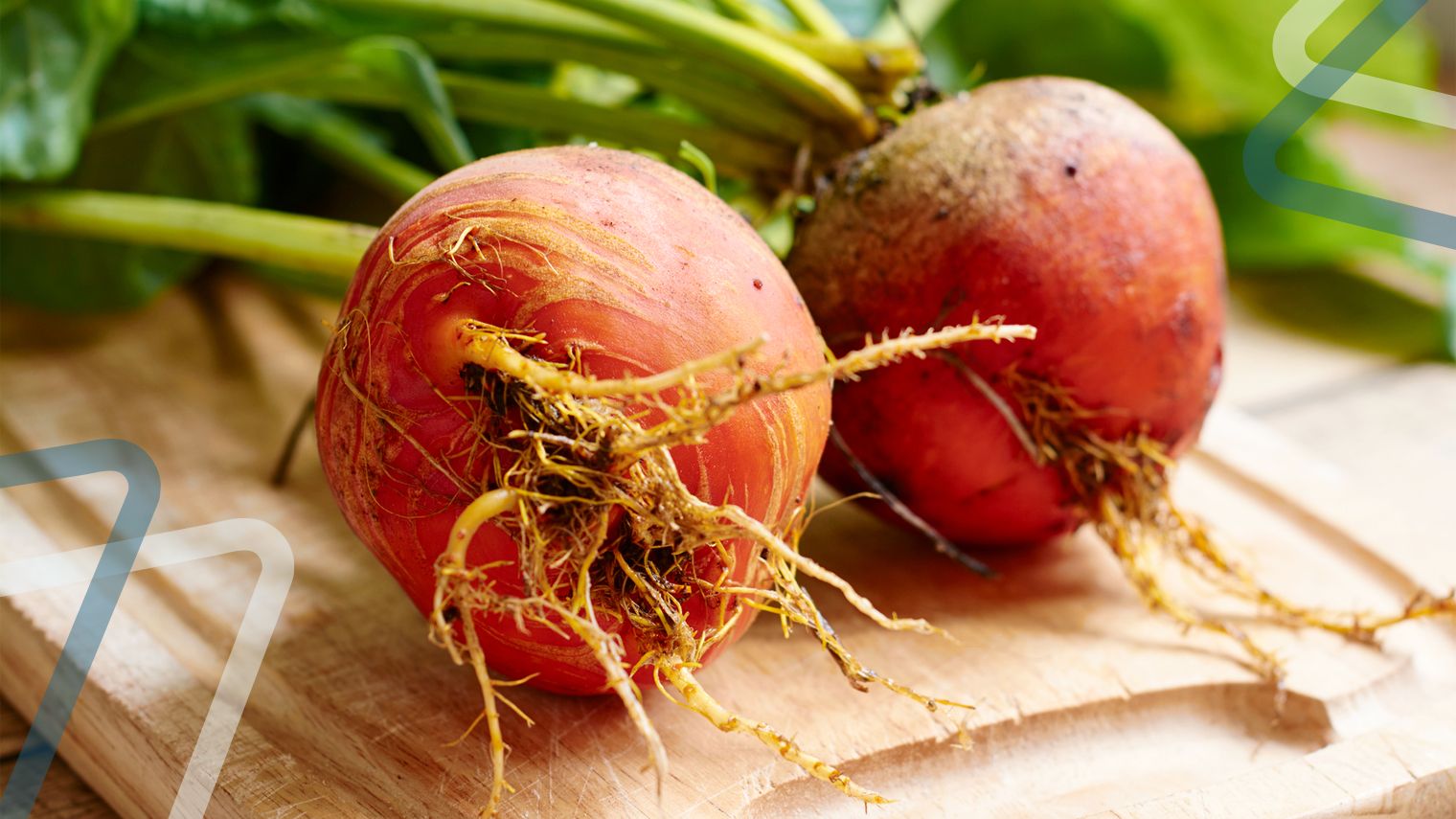Are Beets Beneficial for People Living with Diabetes?
January 26, 2024
Content created for the Bezzy community and sponsored by our partners. Learn More

Photography by Harald Walker/Stocksy United
Beets are a root vegetable that people typically really love or hate. But their benefits may be a new reason to love them.
As it turns out, beets can provide many benefits — like helping manage your blood sugar levels and preventing related conditions. And that is on top of providing several vitamins and minerals your body needs.


What are the benefits of beets?
Beets — also known as beetroot or dinner beets — are a root vegetable that provides several key nutrients. For example, one cup of raw beets provides 3.8 grams (g) of fiber, according to the USDA.
Fiber is just one benefit. Here are more, according to research:
Brain power
In a small, experimental 2021 study involving 44 people living with type 2 diabetes, researchers investigated how eating raw beets affects metabolic and cognitive function. (Cognitive function includes things like your ability to think, your attention span, and how fast you process things).
The results found that after 8 weeks of consuming beets, the participants saw improvements in glucose metabolism, cognitive function, and other metabolic markers.
Though the study was too small to make broad claims about beets and cognitive functioning, it does suggest that beets may have a positive effect.
Protection
According to a 2020 review of research, beet juice may help manage cardiometabolic diseases. The researchers state that sufficient evidence supports the claim that beet juice may help prevent cardiovascular disease and metabolic diseases like diabetes.
The researchers write that beet juice may offer:
- lower blood pressure
- improved insulin levels
- blood clot prevention
- reduced blood sugar levels
- improved heart function
Despite containing some natural sugars, beets will not raise blood sugar levels when eaten in moderation, according to the research. In fact, they will likely lower or just not raise your blood sugar levels.
Beets might even protect against several complications of type 2 diabetes. That’s because beets contain a lot of compounds known as antioxidants. Antioxidants help to reduce oxidative stress or damage to your cells.
According to a 2016 study, the antioxidants found in beets and other fruits and vegetables may help prevent several complications, including ones that affect the eyes, heart, or kidneys.
They also note that while eating vegetables, fruits, and grains with antioxidants may help, supplements may not work. In other words, vitamin C supplements may provide a different benefit than gaining nutrients directly from foods like beets.
Good gut changes
Researchers in 2023 investigated how the various components of beetroot affect the gut microbiota. The gut microbiota is a large colony of bacteria and other microorganisms that live in everyone’s digestive tract.
In addition to aiding digestion, regulating the microbiota may help with several aspects of your health, including diabetes management.
In their study, the researchers suggest that beetroot may have an anti-diabetic effect by altering the gut microbiota in a positive way. However, they also suggest additional studies may be needed to explore how eating beets may help.
How to use beets in a diabetes meal plan
Raw beets
Many of the studies on beets discuss eating beets raw. You can try slicing or grating them and adding them to a salad.
Be mindful of which type of dressing you use for the salad, and avoid adding croutons or other high carb ingredients.
Drinking beet juice
A 2023 study suggests that drinking concentrated beet juice may help manage blood sugar. Just make sure to check nutrition labels since some brands add extra sugar.
Consider fermented beet juice. One study suggests it’s ideal for your gut microbiota.
Cooking beets
If you want to cook beets, you can roast, bake, or steam them. One option is to serve them with other veggies or add them to your salad.
If you want to season them, stick with spices and herbs and limit the salt you use when cooking and eating them.
Takeaway
Beets may provide several benefits to people living with type 2 diabetes. The research outlined here suggests they may help lower blood sugar levels and help prevent type 2 diabetes complications.
You can eat beets as part of a salad, drink beet juice, use it as a dressing, or try cooking beets to add them to your diet. Check with a healthcare professional if you’re unsure if beets are a good option for you.
Medically reviewed on January 26, 2024
6 Sources


Like the story? React, bookmark, or share below:
Have thoughts or suggestions about this article? Email us at article-feedback@bezzy.com.
About the author